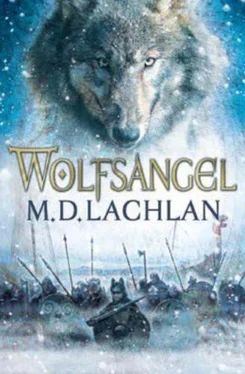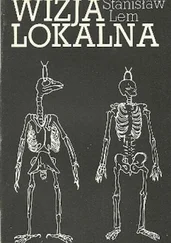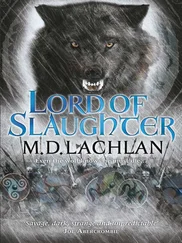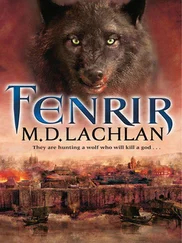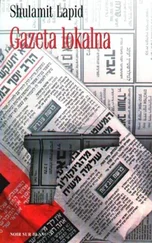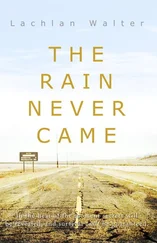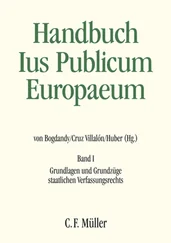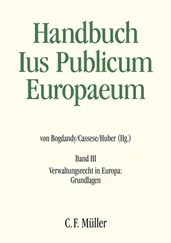M. Lachlan - Wolfsangel
Здесь есть возможность читать онлайн «M. Lachlan - Wolfsangel» весь текст электронной книги совершенно бесплатно (целиком полную версию без сокращений). В некоторых случаях можно слушать аудио, скачать через торрент в формате fb2 и присутствует краткое содержание. Жанр: Фэнтези, на английском языке. Описание произведения, (предисловие) а так же отзывы посетителей доступны на портале библиотеки ЛибКат.
- Название:Wolfsangel
- Автор:
- Жанр:
- Год:неизвестен
- ISBN:нет данных
- Рейтинг книги:5 / 5. Голосов: 1
-
Избранное:Добавить в избранное
- Отзывы:
-
Ваша оценка:
- 100
- 1
- 2
- 3
- 4
- 5
Wolfsangel: краткое содержание, описание и аннотация
Предлагаем к чтению аннотацию, описание, краткое содержание или предисловие (зависит от того, что написал сам автор книги «Wolfsangel»). Если вы не нашли необходимую информацию о книге — напишите в комментариях, мы постараемся отыскать её.
Wolfsangel — читать онлайн бесплатно полную книгу (весь текст) целиком
Ниже представлен текст книги, разбитый по страницам. Система сохранения места последней прочитанной страницы, позволяет с удобством читать онлайн бесплатно книгу «Wolfsangel», без необходимости каждый раз заново искать на чём Вы остановились. Поставьте закладку, и сможете в любой момент перейти на страницу, на которой закончили чтение.
Интервал:
Закладка:
6
Had Authun been of a more reflective nature, he might have wondered why the witches had been so generous as to grant him the son he longed for. He would have suspected unasked-for generosity in any rival king and expected it as a right from a visiting ambassador, but the witches belonged to another realm entirely. They were in the sphere of the supernatural, the unguessable, similar to providence or fate, and he didn’t question their gift any more than he would have a whale beaching on his shores, or a good wind for his longships on a raid.
It would have surprised him to learn that the witches were acting from something as mundane as fear.
Though the women of the Troll Wall were considered monsters by the people and kings from whom they took their tribute, they were really not so very different to the terrified farmers, jarls and thralls who left their gifts of food, drink and children on the mountainside.
The fisherman who had lost his boy, for instance, thought of the witches as monsters. He couldn’t say if he had been waking or dreaming that midnight when the air in his house had seemed as tight and cold as a compress on his skin and the thing he had glimpsed from the side of his eye vanished when he turned to look at it properly. The lad had woken in the morning and said the women had called to him, so the fisherman had taken him to the mountain. There was no other way, he knew. The consequences of refusal would be visited on all his people, not just his own family.
The man had watched trembling as his son walked away and was swallowed by the fog. He couldn’t have imagined that the witches felt anything at all, least of all fear. But the women were afraid.
What is prophecy? It is a wide thing of many forms. We don’t call a person who anticipates a cat will knock over a cup and moves to catch it a prophet. We don’t maintain that the ability to look at the clouds and say it will rain makes you a seer. Even in the summer we know the cold of winter will come, but no one claims magic powers for that. These predictions are part of our everyday experience of the future, not a veiled and mysterious thing but something that connects directly to the present.
In the crags and caves of the Troll Wall, behind that door in the face of the cliff that you would not see, could not see, if you were not invited there, the witch queen’s powers of prophecy were not unrelated to those possessed by us all. The boundaries between the present and the future are not as strong as we imagine, and the witch queen had sweated, frozen, starved and hallucinated until hers were not strong at all.
Prophecies were not something external to her, something she made or said; they were part of her consciousness, the way she saw the world. They were like a language she spoke. And for a year before the queen had sent Authun on his mission, that language had hissed softly of a threat. It did not arrive wholly formed one day, but rather started like a suspicion or even a rumour — a whisper beneath the rush of the cave streams or a cold that crept too far into the earth and left her shivering even in the wolf chamber, where the breath of a fettered god heated the rock so it was painful to touch.
The feeling grew in her as she sat in the dark, and it grew in the other sisters. As the witches eroded the distinction between today and tomorrow, they blurred the lines between me, you, she and it. Their experiences were like possessions that could be lent, borrowed or shared.
Minor magics were used to clarify the sense of foreboding. The sisters lit a whale-blubber candle and asked it for a vision. They could have asked anything to direct them but they chose the candle because it had once been a living thing and so its connections to the outside world were more solid than those of the rocks of the caves. First the candle revealed its past, as it would to anyone, the fish stink filling the cave. The sisters, though, could sense more. They breathed in the stress that had seeped into the fat with the whale’s beaching, its discovery by hunters and its killing. The candle burned on, and they began to see that, for the prophecy, the quality of its light was the important thing.
Then a sister, because it felt right, reached forward and snuffed out the flame. The light disappeared but the thought of the light, its residue, filled the witches’ minds. Underneath the sickly yellow of the flame, they thought, was a darker colour, a bright slate, the colour of the sky before a storm. The link was followed, and rainwater was brought down in a cup from the top of the Wall, and it was noticed that the water felt heavier than normal water, or rather it held a sentiment, a wish. The water, thought the sisters, still wanted to fall, to be rain again. The smell of it too was sharp, like ozone. The link to the coming storm seemed stronger.
A witch went to the top of the Wall to observe the birds. They had moved from the north face of the mountain and come around to the south. In the valley, she could sense, other animals were moving to shelter. The gulls had come inland and insects were burrowing into the earth. Why were these things happening? Because the witches were looking. The animals didn’t move to offer auguries to the ordinary people of the mountains.
The portent was clear then — a storm, a magical storm. In the winter the message became clearer. The smoke on the wind bore the scent of funeral fires; the rats that ran through the caves seemed to carry an excitement and an expectation; more ravens than gulls were seen in the sky; a vision of the hangman’s tree seemed to resonate in the witches’ minds, day and night, the creaking of the rope waking them from their dreams, intruding on rituals where it had no place. Death was all around them, they knew, waiting for its moment to touch them. The time for subtlety was over.
A rune would need to be carved. The ordinary people knew runes, scratched symbols that allowed them to record simple messages or list things. But to the witches they were much more than that, more even than charms for amulets or to guard a chest, as some of the healers and wise women of the farmsteads knew them to be. They were living things that took root in the mind and grew within it, changing it utterly, feeding on sanity and blossoming into magic.
Rune carving was not something the witches took lightly. Runes were powerful sources of magic given by Odin — or rather taken in pain and anguish and wilful madness from the dark god by the earliest women who had retreated to the mountain.
Generations before, there had been just one witch. She had sat alone in the caves, her mind falling through the dark, until her pain had matched the dead lord’s when he hung on the tree for nine days and nights pierced by the spear and chilled by the moon at the well of wisdom. Her reward was a rune that meant daylight and, though it had no name, it shone in her mind and warmed her bones like the sun on a summer’s afternoon. The presence of the rune inside her gave her the power to heal the people of the mountain and the ability to reveal glimpses of the future to them. In return, they had sent her three girls to train.
One of them, drowned, starved and frozen for year after year, met the dead god by the deep pool and was given a rune that sparkled like bright water. The minds of men fell open to her and she began to dream the dreams of children in faraway places, hear jealous whispers flowing through the mountain passes and feel the coursing currents of love and hate that washed over the farmsteads.
Another took a different path to knowledge. She dug her own grave and the sisters sealed her in with a rock. As her sanity collapsed she had felt the god lying next to her in that tiny space, touched the rope at the god’s neck and felt his body cold and lifeless next to her. Her rune seemed to grow and wither in her mind, now obscured by earth and weeds, now exhumed and vibrant. When she was lifted from the ground she was scarcely breathing, but she had won the most valuable rune of all. Now she knew the secrets of inheritance and how magic can be given as a gift.
Читать дальшеИнтервал:
Закладка:
Похожие книги на «Wolfsangel»
Представляем Вашему вниманию похожие книги на «Wolfsangel» списком для выбора. Мы отобрали схожую по названию и смыслу литературу в надежде предоставить читателям больше вариантов отыскать новые, интересные, ещё непрочитанные произведения.
Обсуждение, отзывы о книге «Wolfsangel» и просто собственные мнения читателей. Оставьте ваши комментарии, напишите, что Вы думаете о произведении, его смысле или главных героях. Укажите что конкретно понравилось, а что нет, и почему Вы так считаете.
